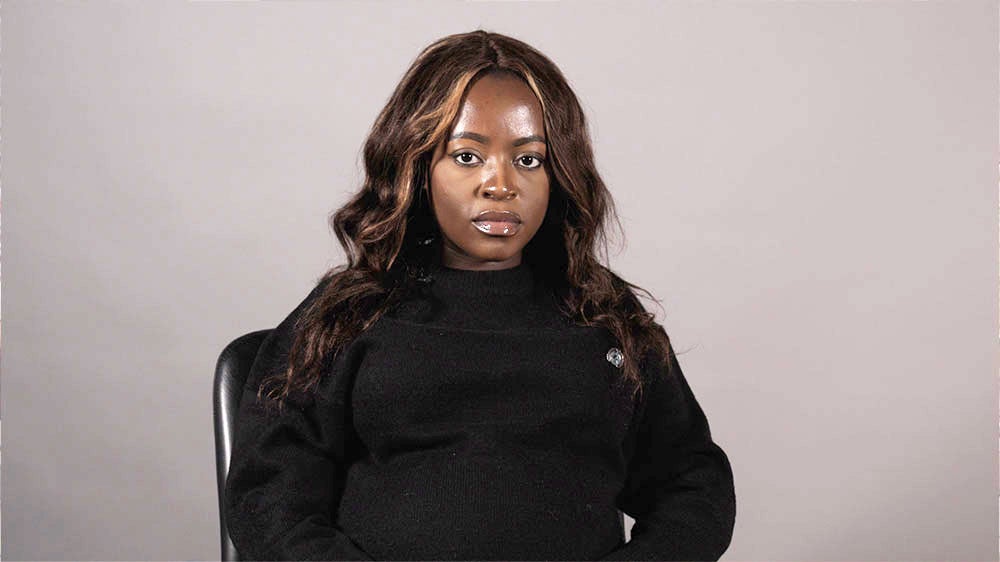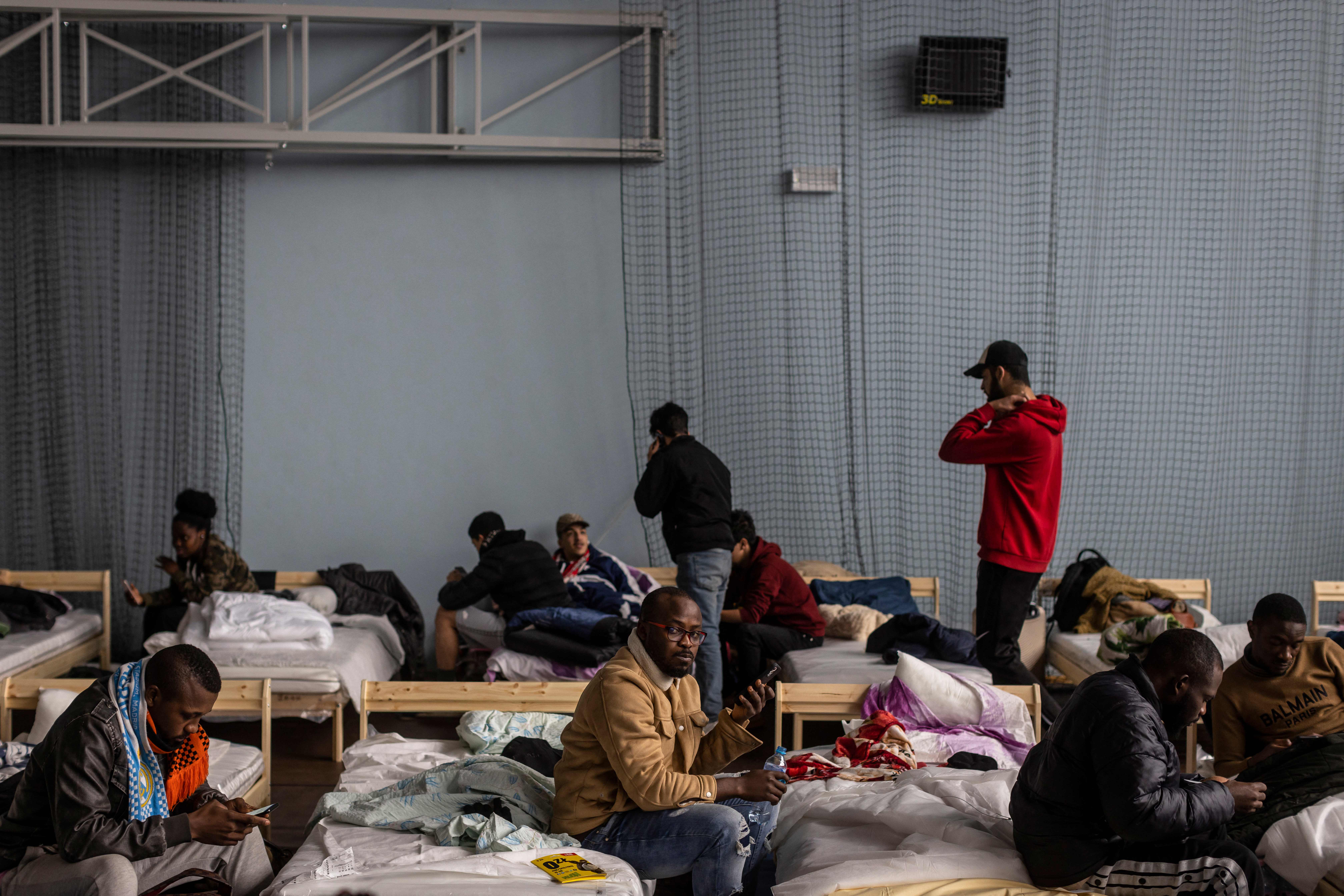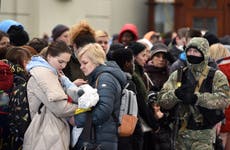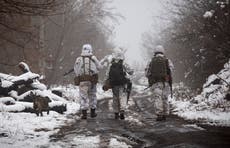Forgotten and abandoned: the Black, international students caught up in Ukraine conflict
As the world marks the first anniversary of Russia’s invasion of Ukraine, the plight of the country’s international students have largely been forgotten
Your support helps us to tell the story
From reproductive rights to climate change to Big Tech, The Independent is on the ground when the story is developing. Whether it's investigating the financials of Elon Musk's pro-Trump PAC or producing our latest documentary, 'The A Word', which shines a light on the American women fighting for reproductive rights, we know how important it is to parse out the facts from the messaging.
At such a critical moment in US history, we need reporters on the ground. Your donation allows us to keep sending journalists to speak to both sides of the story.
The Independent is trusted by Americans across the entire political spectrum. And unlike many other quality news outlets, we choose not to lock Americans out of our reporting and analysis with paywalls. We believe quality journalism should be available to everyone, paid for by those who can afford it.
Your support makes all the difference.Thousands of African students who fled Ukraine have been “frozen out” of receiving aid for those driven out by Russian attacks, The Independent has been told.
Before the conflict, around 76,000 international students, mostly from Nigeria and Morocco, Ghana, Zimbabwe and India, were based there.
But after grappling with racism at Ukraine’s borders while trying to flee, a large number of students are displaced in countries, including Turkey, Italy, Kenya, Romania and Belgium, unsure of their next move.
Many are unable to complete their studies, battling with the mental and emotional distress of having escaped Putin’s onslaught, some are facing poverty, while others have even taken their own lives, The Independent has learned.
But while Ukrainian citizens are able to receive aid from the international community, their African counterparts have been left to fend for themselves or rely on grassroots organisations for support.
Speaking to The Independent from her family home in Nigeria, student Eshi, 24, said: “There were other people living in Ukraine with Ukrainians and, regardless of the colour of our passports, the colour of our skin or hair; we’re all human beings.
“We actually had our lives in that country; not everyone was students, some had businesses and family members.”
Following the outbreak of war, international students were advised to “go home”, however, help wasn’t forthcoming from many governments.
A great number believed returning to their birth countries without a degree wasn’t a viable option and instead sought refuge in neighbouring European countries in a bid to secure future study.
A key reason why many migrated to Ukraine in the first place, was the affordable tuition fees, access to special loans, and the opportunity to make better lives for themselves.

International students from Ukraine are not allowed to transfer to UK universities, so the UK is a no-go zone for many of the thousands of African students seeking to finish their studies there. The only exception is the University of Manchester, which is accepting students from Ukraine who aren’t nationals of the country.
While facing the prospect of repeating two years of studies due to the war’s disruption, many students have been asked by their universities to pay inflated tuition costs, an additional fee to graduate and shell out large amounts of cash for manuscripts, which they cannot afford. Anyone who falls behind with fees faces being expelled.
And some Ukraine universities are forcing international students to return and sit exams before they can be awarded their degrees, The Independent has learned.
Defending its decision, the Ukrainian government cited the need for “academic integrity and quality control”. However, with many students facing financial hardship and difficulty with securing visas, returning to the besieged country is not a viable prospect.
As the world acknowledges the first anniversary of Russia’s invasion of Ukraine, many students feel their plight has largely been forgotten.
An earlier investigation by The Independent revealed that non-white refugees fleeing Ukraine were being detained in EU immigration facilities without reason. No one has been held accountable for this.
Following social media posts about racism at the borders, The Independent interviewed students who had experienced this amid a sea of speculation from critics that the online commentary about discrimination was “lies” and a “Russian disinformation campaign”.
Eventually, the United Nations released a statement acknowledging that the accounts were true and pledging to take action as celebrities, including Beyonce, showed solidarity with the international students.
This week, over 70 MPs and peers, including the former home secretary Priti Patel, signed an open letter calling on the government to act now to help thousands of white Ukrainian refugees who are facing homelessness in the UK. Commentators have pointed to a disparity in public and political concern about the welfare of Black students who fled Ukraine.
Korrine Sky, 27, a former medical student who trained in Dnipro before fleeing the war, is now based in Leicester.
The Zimbabwe-British dual citizen was devastated to learn that she could not transfer to continue studying in the UK as the General Medical Council (GMC) had stopped accepting medical qualifications from her school. She has not received any support from the UK government or agencies, as citizen, since arriving back a year ago.
Reconciling with the trauma of escaping war, having a gun pointed at her head and being lunged at while facing discrimination at borders, the prospect of delaying her dream of becoming a doctor has been a lot to bear, she says.
“At the time I felt that I experienced an identity crisis because a major part of my identity was that of a medical student,” she said. “I pursued my hopes of becoming a doctor but I (have since) felt that I had to let that dream go in order to fully heal (...).
“I’m trying to remind myself that what happened, how the war affected me, was not my fault and I’m not less of a person,” the mother-of-two added between tears.

Some international students who struggled with this plight have since taken their own lives, Ms Sky said.
“It’s as if the racism that was experienced in Ukraine (at the borders) is now being reinforced in several other countries,” Ms Sky said.
“We’re being told again and again: ‘Ukrainians only’. empathy is not being extended to our community because it’s not our country, as we’ve been told numerous times.
“That has left many of us struggling with our mental health, but also living in different European countries without having any support.
“I empathise with a lot of my peers who have resulted in taking their own lives; I have felt that depression where you’re wondering what to do next.”
A 22-year-old student from Ukraine, who fled to Portugal after the war, told The Independent that distance learning classes were not good enough and teaching support has been lacking.
The student, who has dealt with flashbacks and nightmares since leaving Ukraine, said: “To the world, it might seem like this one year - but to me, it doesn’t seem like so much time has passed.
“I’m out of the war zone but it still feels fresh in my memory. I’m glad that people have moved on, but the problems that Ukraine (universities) keeps bringing up, it’s not easy for some of us to move on.”
The group Africans in Ukraine Education Fund (AIUEF), established by Ms Sky, is raising money for students to continue their studies and has called on global agencies and organisations to “provide fair treatment” to all students.
An online petition calling on universities in the EU, Britain, and the US to put in place support packages and scholarships for African students forced to leave Ukraine has garnered almost 35,000 signatures.
“We are asking that African students be offered access to university places on the same terms as their Ukrainian counterparts. Everyone should have a right to education and this should not be a right that is given to some and not others.”
The Independent has approached the United Nations, Ukraine’s government and the UK government for comment.









Join our commenting forum
Join thought-provoking conversations, follow other Independent readers and see their replies
Comments